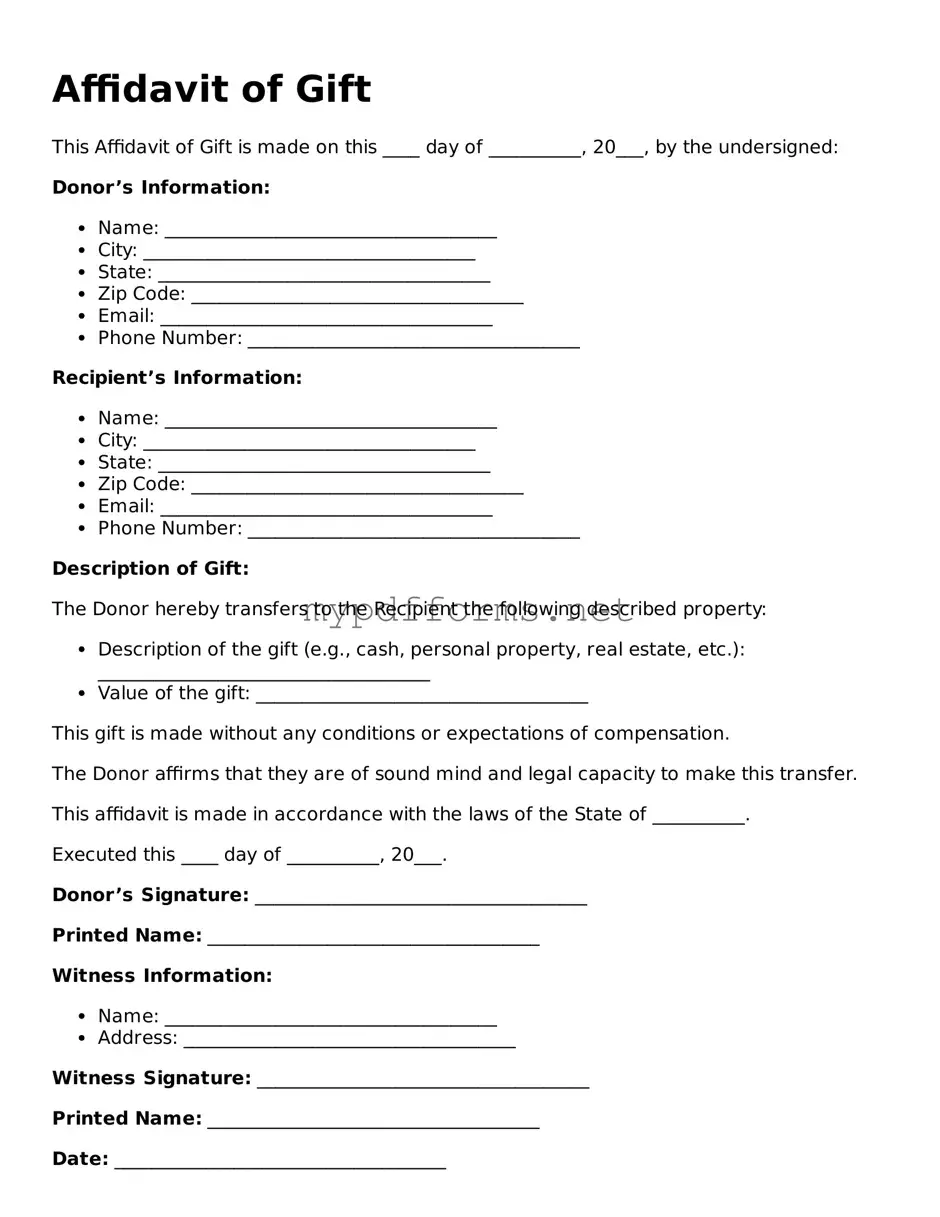The Affidavit of Gift is similar to a Bill of Sale. A Bill of Sale is a document that transfers ownership of personal property from one party to another. Like the Affidavit of Gift, it serves as proof of the transaction. However, while a Bill of Sale usually involves a monetary exchange, the Affidavit of Gift specifically denotes a transfer without any payment. Both documents require signatures to validate the agreement, ensuring that the transfer is legally recognized.
Another document akin to the Affidavit of Gift is the Deed of Gift. This document is used to transfer ownership of real property, such as land or buildings, without any compensation. Like the Affidavit of Gift, the Deed of Gift requires the donor's intent to give the property away freely. Both documents must be executed properly to avoid disputes in the future, and both establish a clear record of the transfer for legal purposes.
The Gift Letter is also comparable to the Affidavit of Gift. A Gift Letter is often used in financial transactions, particularly when someone is providing a monetary gift, such as for a home purchase. This letter outlines the nature of the gift, confirming that it does not need to be repaid. Similar to the Affidavit of Gift, the Gift Letter provides documentation that can be important for tax purposes, ensuring transparency in financial dealings.
When engaging in vehicle transactions, understanding the importance of a Motor Vehicle Bill of Sale form is essential for buyers and sellers alike. This form serves as a vital record of the transaction, ensuring clarity and legality in the exchange. For those seeking to create this document correctly, refer to our guide on a comprehensive Motor Vehicle Bill of Sale form to navigate the necessary details. comprehensive Motor Vehicle Bill of Sale form.
In addition, the Power of Attorney can be seen as related to the Affidavit of Gift. While a Power of Attorney grants someone the authority to act on another's behalf, it can also include the ability to make gifts. Both documents require clear intent and consent from the donor. They establish legal authority, ensuring that the recipient can manage the donor's assets appropriately, whether through a gift or other means.
Lastly, the Trust Agreement shares similarities with the Affidavit of Gift. A Trust Agreement outlines how assets will be managed and distributed, often including provisions for gifting. Both documents reflect the donor's wishes regarding the transfer of assets. They require careful consideration and formal execution to ensure that the donor's intentions are honored and legally upheld.

